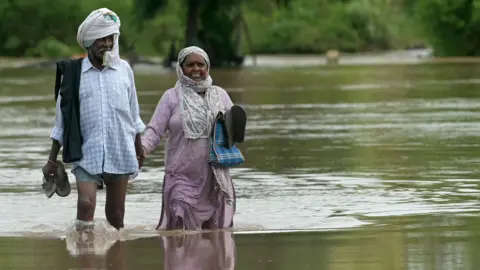An air quality alert has been announced for New York City and neighboring regions, triggered by smoke from ongoing wildfires in Canada. According to a joint statement from the New York State Department of Environmental Conservation (DEC) and Department of Health (DOH) posted on X, the advisory includes Long Island, the New York City Metro area, Lower and Upper Hudson Valley, and the Adirondacks. Residents in these regions are being warned that air quality is "unhealthy for sensitive groups."
The Canadian wildfires have displaced tens of thousands, with smoke affecting various parts of the northern United States. The air quality index (AQI) is anticipated to exceed 100 across much of New York, reaching up to 135 in some areas. Similar alerts have already been issued in parts of New England. The AQI gauge is critical for assessing air pollution levels and associated health risks, with higher figures indicating more hazardous conditions. This is not the first instance of air quality alerts stemming from Canadian wildfires; a comparable situation unfolded in mid-July when an alert was issued for Chicago, leading to safety recommendations for vulnerable populations like infants and the elderly.
The federal ramifications of this environmental crisis have reached Washington, as six Congress members addressed concerns to the Canadian ambassador about the detrimental effects of wildfire smoke on American summer activities. Currently, Canada is battling over 550 active fires, particularly in Manitoba, with 6.1 million hectares (15 million acres) scorched in the past year. May and June were notably severe months, resulting in approximately 30,000 evacuations in Saskatchewan and Manitoba, where local governments declared states of emergency.
Researchers have increasingly correlated the severity of wildfire seasons with climate change, highlighting that Canada is warming at a rate roughly double that of the global average. The Arctic areas of Canada are experiencing an even more dramatic increase in temperature, at nearly three times the global rate, a concerning trend that scientists continue to monitor.


















